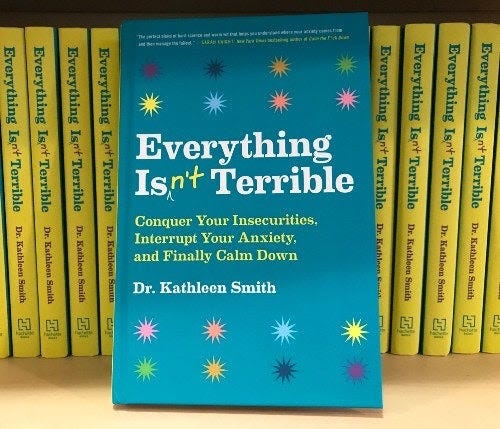What are the stories, spoken or unspoken, that you tell about your family? Who is the leader, the victim, the villain? Who just can’t seem to get their life together, and who runs circles around everyone else?
Humans are storytellers. It’s how we make sense of the world. But this skill isn’t always rooted in reality. It often fails to see the bigger picture. Conveniently, it also can overlook the role we play in our relationships.
As a therapist, I try to help people see how these narratives affect how they treat others. Because in relationships, we often act based on the anxiety of the past instead of the reality of the present. Or we assume we know what people need, instead of considering what they really need.
Here are some common stories we tell about family members:
She’s too sensitive to hear the truth.
Our son needs a lot of extra help.
Don’t bother Dad; he works hard and is tired.
Mom is only happy if she’s in charge.
These stories can be useful but limiting. The challenge is to zoom out and see how the entire family participates in the pattern. To shift from storytelling to systems thinking.
Here’s what it can look like:
The Story: She’s too sensitive to hear the truth.
The System: We hide facts from her to keep things calm.
————————
The Story: Our son needs a lot of extra help.
The System: Anxiously focusing on him has helped stabilize our marriage.
————————
The Story: Don’t bother Dad; he works hard and is tired.
The System: Dad is emotionally distant to avoid being caught up in our conflict.
————————
The Story: Mom is only happy if she’s in charge
The System: We act less capable and she always volunteers to do it for us.
It’s not that these stories can’t be true. Kids need help. People are sensitive. Many of us like to being in charge. But you miss seeing the reciprocity in our relationships when you focus on the individual. When you see personality instead of pattern.
Thinking systems opens up the possibility that others are not fixed creatures, destined to be stuck in the same stories. And seeing your part is not about blaming yourself—it’s about creating space for greater flexibility, creativity, and intimacy in your relationships.
This week, consider what stories you tell about others in your family. Here are some additional questions.
What are the common narratives in my family about others? About myself?
How have these stories been used to keep things calm?
How have these stories kept people stuck in their functioning?
How do my actions reinforce these stories?
The truth is that people are more capable and interesting than the narratives we give them. By adjusting ourselves within the large system, we give everyone the space to exist outside the same old stories.
News from Kathleen
For Medium this week, I wrote about how there’s more to maturity than finishing your to-do list.
Want to support my free newsletter? Buy me a coffee to keep the thoughts flowing.
Want to read more of my writing? You can read my essays for Medium’s Forge Magazine, read old newsletters at my website, or buy my book Everything Isn't Terrible from Amazon, Barnes and Noble, Indiebound, or your local bookstore (best option).
Want a free anxiety journal? Calming Down & Growing Up: A 30 Day Anxiety Journal includes thirty daily prompts to help you reflect on and respond to your anxious behaviors. To receive a copy, just email me your receipt.
Follow me on Twitter, Facebook, or Instagram, or email me if you have questions about my therapy practice in Washington, DC, virtual Bowen theory coaching, or having me speak to your group.
Want to learn more about Bowen theory? Visit the Bowen Center’s website to learn more about their conferences and training programs (which are accepting applications now).





